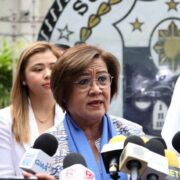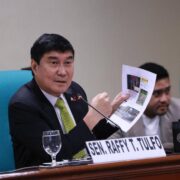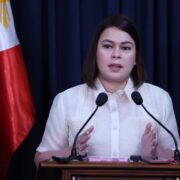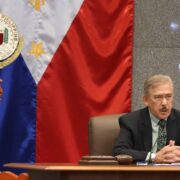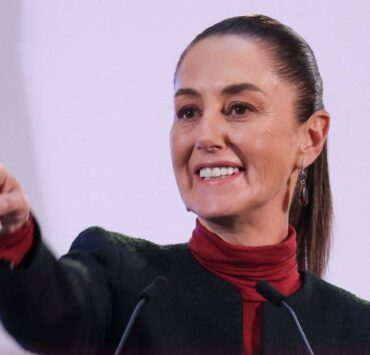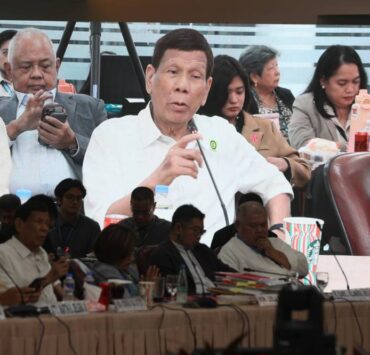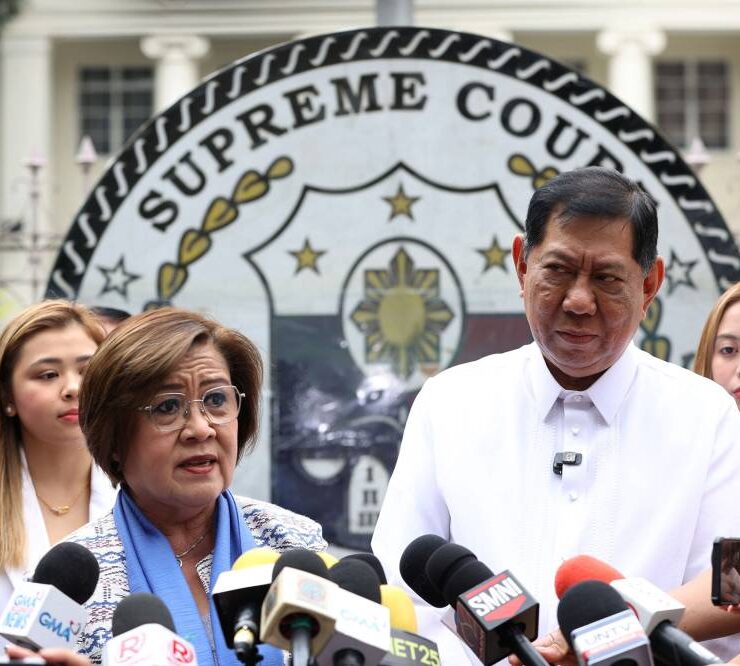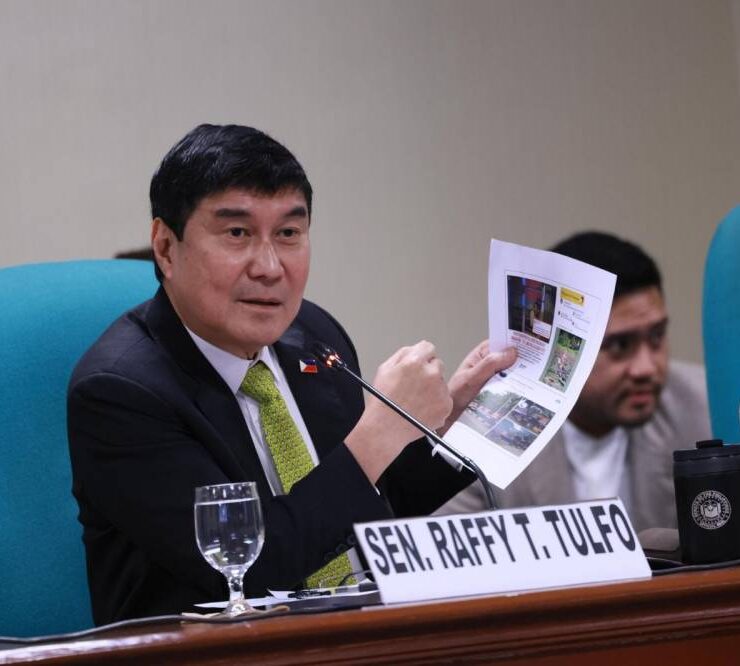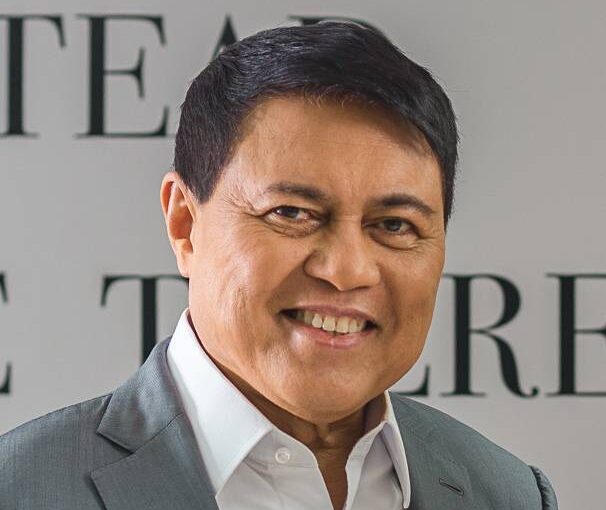Budget critics: Veto still left ‘pork’ intact
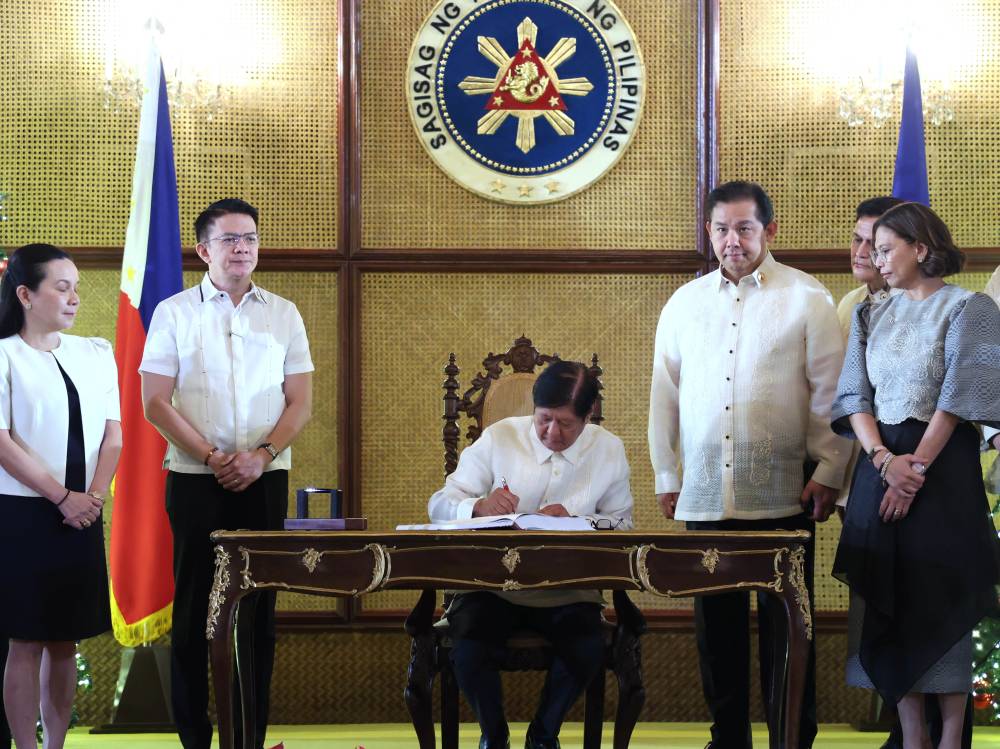
Former Senate President Franklin Drilon and a former finance official on Tuesday said the vetoes of certain items in the 2025 national budget by President Marcos did not correct flaws in the proposed General Appropriations Act (GAA) and left “pork” largely intact.
Drilon lamented that what was touted as an “exhaustive and rigorous” review of the budget that led to the P194-billion cut still left the supposed pork barrel allocations mainly intact in the P6.326-trillion GAA enacted by the President on Monday.
In the President’s 22-page veto message released by Malacañang on Tuesday, it appeared that the largest portion, which amounted to P168.24 billion, was for 15 expenditure items that were supposed to be covered by unprogrammed appropriations (UAs).
The P26.065 billion worth of projects of the Department of Public Works and Highways (DPWH) that he vetoed included at least 95 related to flood mitigation and flood control, which were among the priorities of his administration that he highlighted in his State of the Nation Address in 2024.
“The veto of unprogrammed activities is cosmetic, more than anything else, as unprogrammed activities and projects are not supported by programmed revenues,” Drilon said in a statement. “It also means that the pork insertions are generally intact.”
The former senator was referring to the President’s statement that he exercised his veto powers after listening to criticisms against the government’s spending plan for 2025 that came out of the bicameral conference committee.
“To the Filipino people, we listened to you. We thank you for scrutinizing our national budget and for objecting to the discrepancy between the versions submitted by Congress from the proposed funding submitted by the President,” Mr. Marcos said after signing the budget bill on Dec. 30.
Public works budget
Among the items that were widely criticized was the DPWH budget that was bloated by almost P289 billion. Public works projects have the reputation of being among the largest sources of kickbacks for corrupt government officials.
The budget was also criticized for deleting the P96-billion proposed subsidy for the Philippine Health Insurance Corp. (PhilHealth), P74.4 billion for the Pantawid Pamilyang Pilipino Program (4Ps) of the Department of Social Welfare and Development (DSWD), and P10 billion for the computerization program of the Department of Education (DepEd).
In his speech during Monday’s signing ceremony in Malacañang, the President said that the 2025 budget would support enhanced and expanded social and public services aligned with the administration’s Philippine Development Plan 2023-2028.
But Drilon said that the President did not fix the flaws cited by critics of the proposed budget.
For one, the P168-billion vetoed UAs will not create a funding source for the defunded projects, like the P74.4-billion subsidy removed from PhilHealth, Drilon said.
After deducting the P26 billion worth of projects, the DPWH would still have an additional P263.9 billion, he said.
“The total insertions were merely reduced to P347 billion,” Drilon added.
Only P26 billion that will revert to the national treasury would be available to finance defunded projects in the National Expenditure Program, he said, adding that the cuts in the PhilHealth subsidy and the 4Ps were unlikely to be restored.
Drilon doubted Malacañang’s pronouncement that the President vetoed some items to prioritize his administration’s so-called legacy projects.
“If they are still in the UAs, they may get funded if the government generates additional revenues, either from new taxes or from additional revenues collected in excess of target. That means unlikely,” he said.
He is also skeptical of the assurance from Cabinet members that the national government would find remedies to fund the PhilHealth subsidies and 4Ps.
“For those projects that suffered cuts, like the 4Ps, they can be augmented with savings. But for those projects that were left with zero funding, like the P74.4-billion PhilHealth subsidy, they cannot be augmented with savings,” Drilon said.
“[These unfunded projects] will have to wait for the 2026 GAA,” he added.
No significant change
Former Finance Undersecretary Cielo Magno said the “bicameral insertion” for DPWH was almost P289 billion but Mr. Marcos vetoed only P26 billion of that.
“The propolitician items or pork barrel has not significantly changed,” she said.
She said that she and other petitioners who had questioned the constitutionality of the transfer of P89.9 billion in PhilHealth funds for unprogrammed appropriations this year, were also considering challenging the removal of the PhilHealth subsidy in the 2025 budget.
“These defects should be questioned before the Supreme Court,” she told the Inquirer.
She did not name the other likely complainants, but her copetitioners in the PhilHealth case last year included Sen. Aquilino “Koko” Pimentel and former PhilHealth head executive staff Dr. Minguita Padilla.
Magno denounced the “still propolitician and antipeople” budget enacted by the President.
“As expected, the line-item veto did not cure the defects of the 2025 budget. Education and health should be prioritized. And the budget should be free of programs that promote patronage politics and pork barrel,” said Magno, an associate professor at the University of the Philippines School of Economics.
She explained that striking out the items under the unprogrammed appropriations would “not create additional sources of funding because they are standby projects only.”
What was emphasized by the President’s decision to veto such items were his “misguided priorities,” Magno said, citing the budget cuts for the 4Ps and Public Health Emergency benefits and allowances for healthcare workers and non-health-care workers but keeping the budget for the Ayuda sa Kapos ang Kita Program (Akap).
She said Akap, a cash dole out for the “near poor,” was susceptible to being used by politicians for political gains.
But Social Welfare Secretary Rex Gatchalian had stressed that no local or national politicians would be involved in Akap as all the applications and aid distribution would be handled purely by social workers.
The 4Ps is the government’s flagship antipoverty program.
Affected projects
The 95 public works projects that would be affected by the veto would include the construction and maintenance of flood mitigation structures, drainage, septage and sewerage, water impounding stations and rainwater collectors, integrated flood and water resource management structures, etc. in Metro Manila, Ilocos Region, Cagayan Valley, Central Luzon, Bicol Region and Central Visayas.
These would impact many areas which suffered severe floods in recent typhoons—such as Metro Manila and Bicol Region.
After Typhoon “Kristine” (international name: Trami) slammed into the Bicol Region, Mr. Marcos vowed to implement a comprehensive, integrated flood mitigation project for the Bicol River Basin.
The biggest chunk of the vetoed UAs was P75.99 billion for priority social programs for health, including the Health Facilities Enhancement Program, social welfare and development, higher education, technical and vocational education, and other social programs.
This was followed by P50 billion in rejected funds for the 4Ps. Also vetoed was P1 billion for the social pension for indigent elderly Filipinos under the same agency.
Similarly scrapped was P1 billion for the Pambansang Pabahay Para sa Pilipino Program, one of the Marcos administration’s flagship programs; P500 million for the Social Housing Finance Corporation’s community mortgage program; P5 billion for the Department of Education’s computerization program; P2 billion for the public health emergency benefits and allowances for health-care and non-health-care workers; and P5 billion for the Rice Competitiveness Enhancement Fund.





